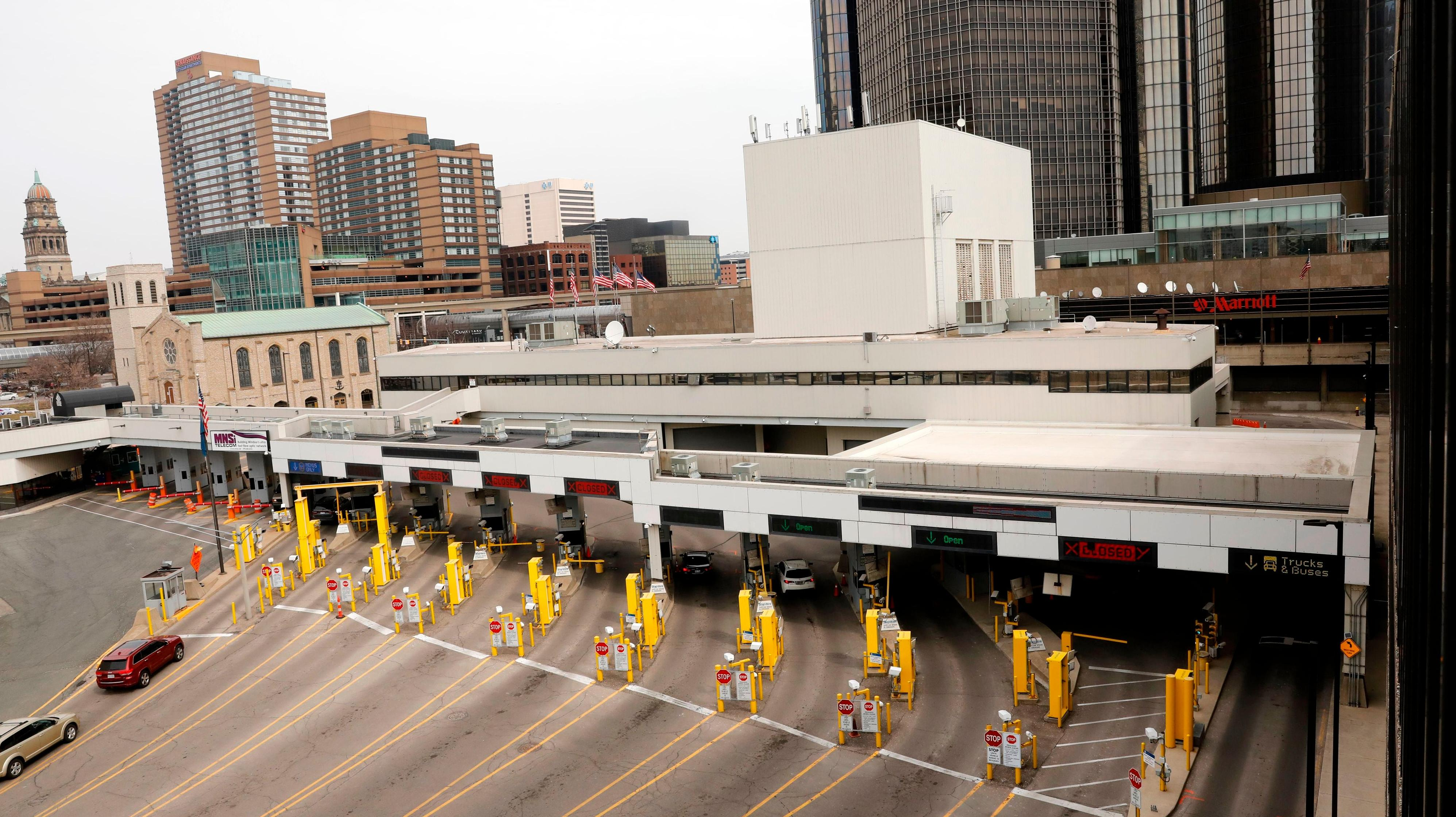International Tunnel Could Be Where Canadians Get America's Unused COVID-19 Vaccines
An ambitious plan by Windsor, Canada's desperate mayor would close the Windsor Tunnel in order to host COVID-19 vaccine inoculations of Canadians using a surplus of American vaccines.
The Windsor-Detroit Tunnel Corporation voted unanimously on Wednesday to close the Windsor side on the two-lane tunnel that connects the U.S. and Canada and runs under the Detroit River, the Windsor CTV News reports. The Corporation owns and operates the Canadian side of things and includes Windsor Mayor Drew Dilkens on its board, while the City of Detroit handles the U.S. side. The Corporation also voted to approve a line to be painted down the tunnel so befuddled Canadians don't accidentally wander into America.
In fact, the tunnel itself has been closed to all nonessential travel since December of 2020, and Canada is in no hurry to open things back up. That means the tunnel has been pretty empty anyway. (Most trade across the border comes in at the Detroit Ambassador Bridge, which carries roughly 27 percent of all merchandise trade between Canada and the U.S.) Mayor Dilkens says he's ready to set up the vaccination sites. From the News:
"We are able to move at any time now," says Windsor Mayor Drew Dilkens, who called the meeting and also chairs the local tunnel board. "They also approved painting a line at the centre of the tunnel to mark the Canadian and U.S. border so we can make sure that if we have to go down to the tunnel, if it becomes that ridiculous that we have to go down there to get these vaccines in arms, we can make sure everyone stays on the right side of the line so as they don't have to quarantine and no one's going to get into trouble."
Last week, Mayor Dilkens pitched the idea as a work-around, after efforts to send people across for a second-dose vaccination without the need to quarantine upon return to Canada was denied by both the Canadian federal government and U.S. Customs and Border Protection.
"There are a lot of different things in play here," says Dilkens. "What I'm trying to do is cut through all of the politics, and it is heavy right now, and get to the bottom line, which is accelerating vaccinations for Windsorites in my community with doses being offered."
Michigan on the whole is just below 60 percent vaccinated as of this writing, but the state has a surplus of the vaccine appointments open at the three major pharmacies in the state, according to GoodRX. Those aren't good numbers, and they mean people aren't booking appointments to get the vaccine. Meanwhile, experts say that we need 70 percent vaccination rate to get anywhere close to heard immunity.
Canada has the opposite problem, however, according to the Atlantic:
The time between the vaccines being approved and the vaccines getting into people's arms is one where you can't do it fast enough," says Tim Evans, the head of McGill University's School of Population and Global Health as well as Canada's COVID-19 Immunity Task Force. "A large majority of people see vaccines as our ticket out of this pandemic. So I think that's part of the issue—every day seems like an eternity."
But Canada's problems run deeper: Through a combination of bureaucracy and legislation, the country has slowly lost its drug manufacturers that were doing original R&D, its capacity to respond to potential pandemics early, and its federal clout in organizing national strategies for pandemic response and emergency vaccine rollout.
"I think it's a frustration for Canadians, especially to see this massive rollout in the U.S. next door, and to see some countries around the world have much more vaccination per capita," Picard said. "But I think a lot of it is historic, unfortunately."
Right now, even vaccinated nonessential travelers are banned from entering Canada and those traveling by air must submit to a test and spend three days in a hotel quarantining and waiting for the results. That, plus the mind-bending legalities involved with transporting such a new treatment across an international border means the entire plan may never get off the ground. Dilkens told the News he has 6,000 Windsor residents signed up to get their second dose of vaccine from America's soon-to-expire supply, but there's a lot of politics in the way. The Canadian Minister of Heath didn't seem too keen on the idea, but Dilkens is doing whatever it takes:
"There are a lot of different things in play here," says Dilkens. "What I'm trying to do is cut through all of the politics, and it is heavy right now, and get to the bottom line, which is accelerating vaccinations for Windsorites in my community with doses being offered."
The mayor isn't the only one after Michigan's quickly expiring surplus. The CEO of Windsor Regional Hospital submitted a special request to Canada's version of the U.S. Food And Drug Administration, Health Canada, to try and procure the surplus vaccines from their neighbors, according to Michigan Public Radio.
What would be Michigan's wasted vaccine doses could be Windsor's gain, if the desperate parties can get international politics to move quickly.
